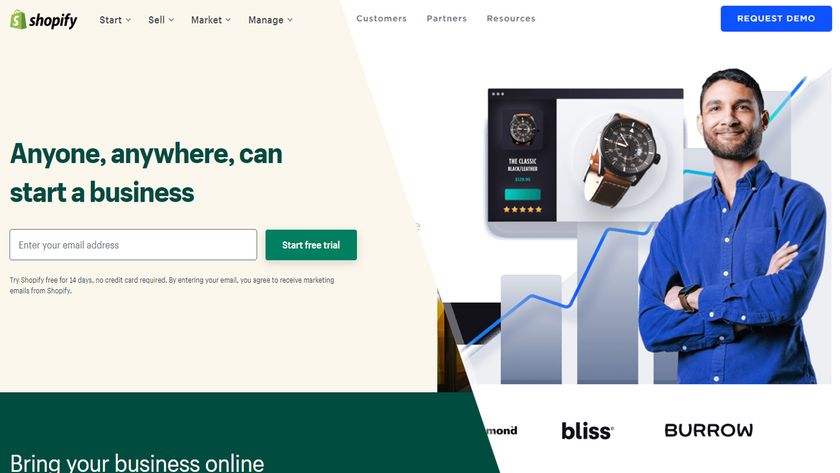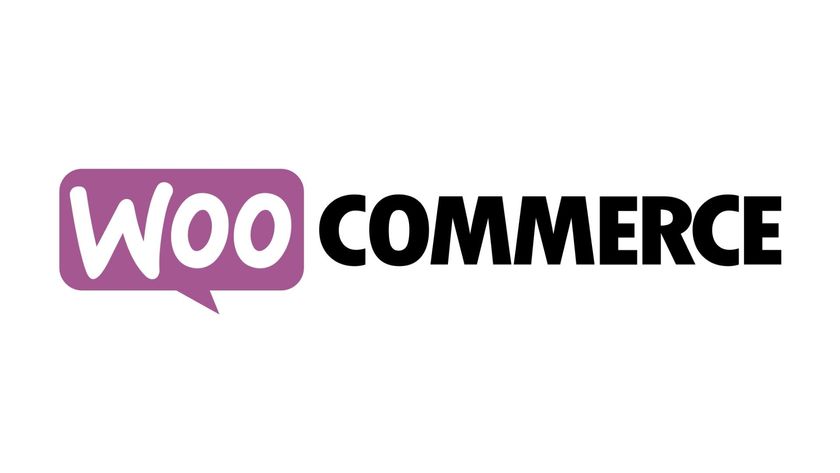Free website builders vs paid: what's best for your business?
The differences between free website builders and paid services

In a growing market, the best website builders allow virtually anyone, regardless of experience, to build a website of their own. You can do this in as little as a few hours, and popular paid options from builders like Wix and Weebly are often accompanied by free plans, complete with effective features and tools. There are also the best free blogging sites, created just for that purpose.
With so many website builders available, some free options are attractive and functional, while others are not even worth considering. However, with limitations and restrictions on a range of website factors, how do free website builders stack up against the premium competition? That’s the question we aim to answer.
We look at features, support, ease of use, and more, with direct examples from some of our favorite free and paid website builders.
Free website builders vs paid: Features

As would be expected, premium subscription-based website builders generally come with much more advanced features than free ones. Free plans usually come with numerous limitations, including the size of your site, the storage and bandwidth you have access to, and the use of advanced tools for building a website.
In most cases, you won’t be able to connect a custom domain name if you use a free website builder. For example, Wix’s free builder limits you to a wixsite.com subdomain, which can look a little unprofessional for a business site. On the other hand, upgrading to a paid plan will enable you to connect a custom domain. And some premium website builders, such as the HostGator Website Builder, even throw in a free domain with every new subscription.
Most free website builders also come with some sort of advertisement for the platform that you’re using. For example, both Weebly’s free plan and its cheapest premium plan come with advertising by Square, its ecommerce partner. You will have to upgrade to the second-most-expensive premium plan, which costs $12 a month, to remove these ads.
Again we see free website builders underperforming here, with most coming with very limited storage and bandwidth. For example, Site123’s free plan includes just 250MB of storage and 250MB of bandwidth. Its premium plans are also a little limited, but still much more generous.
Sign up to get the BEST of Tom's Guide direct to your inbox.
Get instant access to breaking news, the hottest reviews, great deals and helpful tips.
In many cases, you'll find that free website builders just don’t offer the tools necessary for selling items or services through your new business website. A small percentage offer very limited online store features, but you will usually need to go for a higher-end paid subscription for any ecommerce features at all.
Free website builders vs paid: Performance
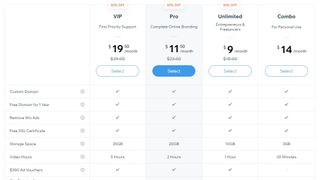
To compare the performance of free website builders and paid-for services, we took a close look at the editing interface and ease of use of three of our favorite options.
For one, Wix offers a selection of both free and paid plans. And unlike many of its competitors, there are no limitations on who has access to which website builder features. Premium users can upgrade their SEO and marketing packages, but free users have access to all other design and editing tools.
On the other hand, Site123’s free website builder is very limited when compared to the paid alternatives. Numerous advanced editing tools are only available for premium users, which can be quite frustrating when trying to create an attractive business site.
For example, you won’t be able to add plugins or custom code snippets to integrate tools such as Google Analytics—which many would argue are essential for a successful website.
Another popular free website builder, Strikingly, is even more limited. While its premium plans are designed for those who want to create a simple yet attractive website, its free plan is disappointing, to say the least. With it, you will be limited to a single-page site with very basic ecommerce tools, and you won’t be able to add custom code snippets or even a site search bar.
At the end of the day, most free website builders come with quite limited editing interfaces. There are some exceptions, such as Wix, but it’s crucial to ensure you do a decent amount of research before selecting a platform.
Free website builders vs paid: Support
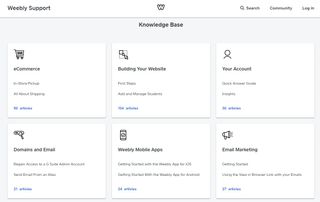
At the end of the day, the support services you have access to will largely depend on the website builder you use. However, we can safely say that free builders (and free plans from paid platforms) generally have much poorer customer service than the paid alternatives.
Usually, free users will have access to a comprehensive knowledge base, community forums where they exist, and, in some cases, email or phone support. However, live support tends to be reserved for paying customers, which can make it hard to get help if you’re using a free option.
Free website builders vs paid: Pricing and plans
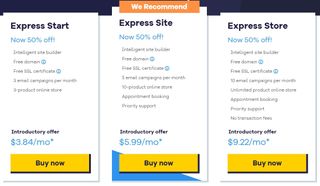
Free website builders are generally 100% free, forever, while the price of a paid subscription can vary from a few dollars per year to tens or even hundreds per month. However, free website builders generally come with quite a few limitations, and a premium option will likely be the best choice for your business.
When it comes to paid website builders, the HostGator builder offers some of the best value for money plans we’ve seen. For just $3.84 a month, you will have access to virtually all the features required to build a fully functional site, and you will even get a free domain name and the ability to create a small ecommerce store.
Meanwhile, Wix’s paid plans range from $14 to $49 a month, and Weebly’s cost between $6 and $26 a month. As you can see, it’s possible to save a significant amount of money if you decide to use a free website builder. But then again, it’s not always worth it.
Free website builders vs paid: Verdict
Comparing popular free website builders with paid builders tells an interesting story. Of course, most free builders are less powerful than their premium alternatives, but this doesn’t necessarily mean that they aren’t useful.
Unfortunately, though, we simply can’t recommend using a free website builder to create a business site. In general, they come with more limited features than paid builders, little or no ecommerce support, only basic customer support, and constraints on bandwidth and storage.
Of course, you will benefit from saving a few dollars per month if you use a free builder, but at the end of the day, it’s really not worth it.
Further reading on website builders
Make sure to read our guide to the best cheap website builders to save you money if you're on a budget. You can also opt for WordPress via the best website builders for WordPress, the best web hosting services, and the best WordPress hosting offered via the former.
Daniel is a freelance copywriter with over six years experience writing for publications such as TechRadar, Tom’s Guide, and Hosting Review. He specializes in tech and finance, with a particular focus on website building, web hosting, and related fields.





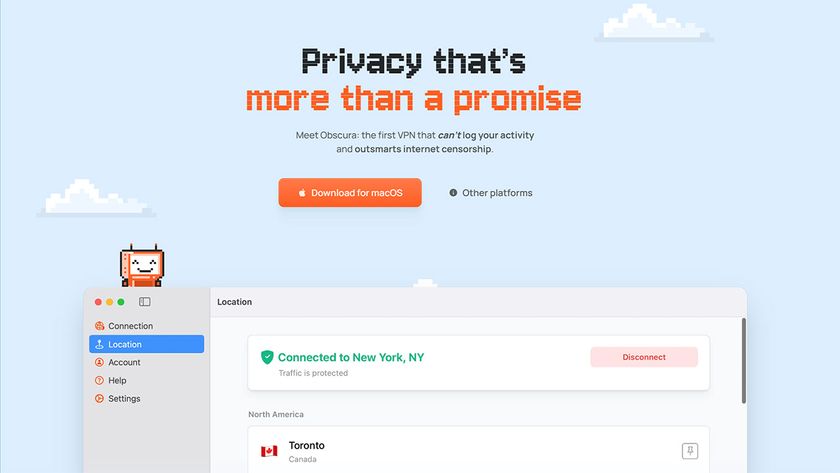

I went surfing and snorkeling with the Amazfit T-Rex 3 — here's why I prefer it to the Apple Watch Ultra 2 for water sports

I'm a decaf drinker — here's why Nespresso's latest drop has finally persuaded me to buy a Vertuo machine

I avoided Apple Maps for trip planning — but these iOS 18 features are changing my mind









